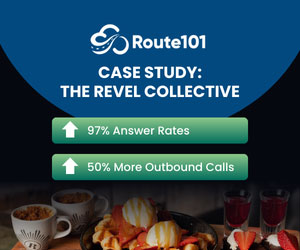It’s time that we stop considering customer service as a cost and start focusing on the value it creates for our customers – and our business.

Let’s look at how one successful organisation does it…
“Do you feel in safe hands?”
For travelers who face an emergency in a foreign land, it’s a question that could mean the difference between life and death.
The query is one that every assistance coordinator at Falck Global Assistance’s emergency response centre asks at the end of each customer conversation. It’s a way of finding out if their level of service not just met, but surpassed, the consumer’s expectations.
Falck Global Assistance, who serves international leisure and business travelers and expatriates with emergency medical assistance, security risk and crisis management and remote-site services, is among the growing number of companies that see customer conversations as a point of strategic differentiation and a brand-enhancing experience.
And it’s about time.
For too long, organisations have treated customer interactions as a cost to be managed. Customer-service reps were trained to rapidly resolve an issue and then move on to the next call as quickly as possible. Lather, rinse, repeat. We even established a series of metrics – calls resolved, time-to-resolution, number of callbacks, etc. – to track it all.
What’s been lost in the sprint toward speed and efficiency is the vital concept of creating value. Sure, every customer interaction should resolve a problem and be handled efficiently. But it should also create a positive experience around our brand.
In a sense, it’s an exercise of applying the strategic matrix developed by legendary economist Michael Porter of the Harvard Business School. Porter has long argued that there are two approaches to deriving maximum benefits from delivering service – in this case through phone-based conversations: either from economies of scale – which focuses mainly on cost – or strategic differentiation – which focuses mainly on value.
Fortunately, companies like Falck are showing the way toward the value-creation side of the equation. And for good reason. The rise of technologies such as live chat, text, electronic forums, social media and many others have increased our touchpoints with consumers but placed the customer squarely in charge of the interaction. The rare occasion when customers pick up a phone and call is a valuable opportunity to ensure the interaction is an overwhelmingly positive one.
Forget Call Quotas… Think Business Value
Simply put, it’s time that we forget about how long a call takes and how many are processed per hour or day. Rather, we should focus on how much business value is created during the customer interaction.
Falck Global Assistance has embraced this service-as-a-differentiator model, using it as an opportunity to deepen the customer relationship. As part of Falck Group, founded in 1906, Falck Global Assistance is part of the world’s largest rescue company whose DNA centered on the philosophy of people helping people
Travelers call Falck Global Assistance’s emergency response centre from all over the world. Some may be in distress due to, say, a natural disaster or accident, while others are merely seeking referral to the nearest hospital. Regardless of the nature of the call, Falck’s assistance coordinators treat each interaction as critical and each traveler with the utmost compassion and care.
Employees patiently answer every question asked, volunteer information as necessary, ensure the customer is fully apprised of the situation and dedicate as much time to the call as is needed. Quotas or matrixes incentivising conflicting behavior on customer interactions are eliminated.
As the interaction winds down, the Falck assistance coordinator signs off with the distinctive, “Do you feel in safe hands?” If the answer is anything but a resounding “Yes,” the employee will dedicate even more time to the call.
By viewing customer service as a strategic advantage rather than a cost, Falck Global Assistance has built an enviable track record of success. It’s a customer-service model we should strive to emulate.
Author: Guest Author
Published On: 13th Nov 2017 - Last modified: 2nd Jan 2020
Read more about - Archived Content






